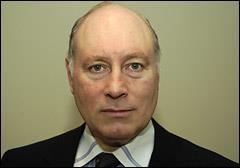When is an independent report not an independent report? Well, it seems when it’s about an edge-of-town retail development in Worcester.

Let’s consider, not one, but two ‘independent reports’ on Land Securities’ proposed retail park development Worcester Woods.
First, there’s the Savills report on the £150m development, which some claim will have a detrimental impact on the existing retail offer in the city centre. This is not a view shared in Savills’ report. It claims Land Securities’ Worcester Woods would have no significant impact on the local high street.
But, there’s another ‘independent report’ doing the rounds in Worcester. Carter Jonas has also taken a look at how this 240,000 sq ft retail park, just off the M5, might affect the existing retail offering in the city.
Amazingly, Carter Jonas appears to have the opposite view to Savills. It claims Worcester city centre faces a “substantial and real threat” as a shopping destination from the Land Securities scheme.
I wonder why two ‘independent reports’ from two respected firms of property agents could be so different. Surely they both used standard industry methods to complete their impact studies? But, if that’s the case, how can each of these ‘independent reports’ be so different?
Could it perhaps, just perhaps, have something to do with who paid for these ‘independent reports’? The Savills report was paid for by Ravenside Investments. Nope, I’d never heard of Ravenside either. But I had heard of its parent company, Land Securities. Yep, Savills was being paid by Land Securities and produced an impact study claiming they’d have no significant impact. Funny that.
Then there’s the Carter Jonas report. Now, that was commissioned by Salmon Harvester, which owns the Cathedral Plaza shopping centre in the heart of Worcester. So, funny how this report suggests there will, in fact, be a significant impact on the city centre.
Before Salmon Harvester owned Cathedral Plaza, Land Securities did, and back in 2011, the UK’s largest property company backed the city council’s policy to maintain a city-centre focus for retail. My, how opinions can change.
What’s worrying about all this is where those with no commercial interests to serve are supposed to get a real ‘independent’ opinion from, not just in Worcester, but throughout the land. Some may think he who pays the piper calls the tune.
The 80s were cooler than you thought
So, despite what those of us who were there at the time are always told, the 1980s clearly was the best decade in history. Better, probably, than even the 1960s.
Yep, it’s true. The 80s were cool. So cool in fact that today’s young property professionals are still looking to those who made it in the 80s for advice on how to do it today. Earlier this week, we revealed the stock market comeback of Desmond Bloom, the powerhouse behind Premier Land. We also wrote of Sir Stuart Lipton’s bid to takeover the long-stalled Pinnacle scheme in the City of London. And over the past few months, we’ve seen the return of 80s property gods Raymond Mould and Godfrey Bradman.
But if you want to hear the thoughts of the man who, more than any other, represents all that was great - and occasionally not so great - about the 80s, then read our exclusive interview with Mr Heron himself, Gerald Ronson.
The way the history of the 80s is being rewritten, soon the cool police will be saying my first ever suit from Mr Byrite in Chelmsford is back in fashion… or maybe not.






























No comments yet